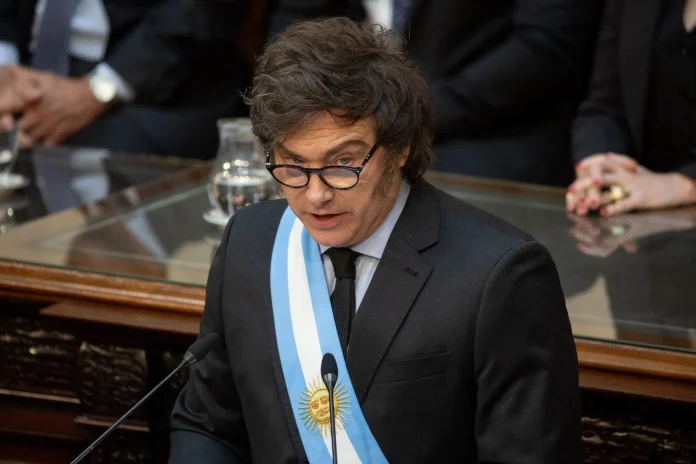Argentina has secured a significant financial boost as it begins to ease its strict currency controls, a move aimed at stabilising its economy and attracting much-needed foreign investment. With the backing of major global financial institutions, the country is making steps towards deregulating its economic framework in an effort to recover from years of economic hardship.
IMF, World Bank, and IDB pledge support
Argentina successfully negotiated a $42bn funding package from the International Monetary Fund (IMF) and two other major financial institutions. This move aims to help the country deregulate its economy.
On Friday, the IMF’s executive board approved a $20bn loan, which will be disbursed over the next four years. The first payment, worth $12bn, will arrive immediately, with another $2bn available after a review in June.
The World Bank has also pledged $12bn to support Argentina, while the Inter-American Development Bank (IDB) will provide up to $10bn. Both plans will span three years.
Argentina lifts currency controls in economic overhaul
In a televised address on Friday, President Javier Milei announced that Argentina will lift most of its strict capital and currency controls starting Monday. These changes were part of the negotiations that secured the large funding packages.
Milei stated, “Today, we are breaking free from the cycle of disappointment and starting to move forward.” He added, “We are permanently removing the exchange rate controls from Argentina’s economy.”
The previous government introduced capital controls, known locally as “el cepo” or “the clamp”, in 2019 to prevent further economic collapse and capital flight. These controls restricted individuals’ ability to purchase US dollars, fuelling a black market. They also limited companies’ access to dollars, discouraging foreign investment — an area President Milei hopes to improve.
IMF support and long-term economic goals
To address the situation, the Argentine central bank will allow the peso to trade within a currency band, rather than pegging it directly to the dollar. The band will start at 1,000 pesos per dollar and increase by 1% each month, with a maximum of 1,400 pesos per dollar.
The IMF said that the new support package would encourage further financing from other multilateral sources. It also aims to help Argentina return to international capital markets. The programme focuses on stabilising the macroeconomy, boosting sustainability, and fostering long-term growth. Key goals include maintaining fiscal discipline, improving monetary policy, and creating a more flexible exchange rate system.
The IMF praised Argentina’s efforts to achieve a zero-deficit budget, leading to the country’s first fiscal surplus in nearly 20 years.
However, to secure this surplus, Milei’s administration made significant cuts, including the dismissal of thousands of public sector workers. These measures have placed considerable strain on the population, contributing to an increase in poverty levels.
